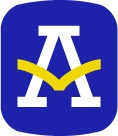Years ago, only advanced math students took Calculus in high school. Today, while Calculus is still an advanced course, an increasing number of high school students are applying to college with a year of Calculus already under their belts.
At top colleges, where competition for admission is fierce, officials say taking Calculus in high school can matter. However, the sequence of courses leading up to Calculus requires students to take Algebra 1 in 8th grade if they want to avoid taking an extra math course in summer school some time before 12th grade. Consequently, many school districts have begun offering Algebra 1 earlier.
What Colleges Say
“There is no question that taking Calculus is important for those students seeking admission to Haverford or other selective institutions,” says Jess Lord, dean of admission and financial aid at Haverford College.
But many students are unprepared or unsuited for the rigors of Calculus. Consequently, school districts offer less strenuous upper grade-level math alternatives. Students should take courses that challenge them, but don’t leave them feeling lost or overwhelmed, say officials.
“We encourage students to take classes that they feel prepare them for college, and not simply classes they think will look good on their applications,” says Tanya Aydelott, admissions counselor at Swarthmore College.
Most college admissions offices look at the courses offered at a student’s high school to evaluate how challenging a student’s course load has been. “We are always on the lookout for students who take unusually rigorous programs of study in high school, and Calculus is certainly a good example of a course that is academically rigorous,” says Louis Hirsh, director of admissions at the University of Delaware.
If Calculus is not offered or there are other conflicts, the admissions office will take these factors into consideration. “In general, we would like to see students take on the most challenging and rigorous course load appropriate to them, in the context of what is available,” Lord says.
It Begins in Middle School
Many school districts have noted the importance of making Calculus available to their students in 12th grade and have changed their curriculum to make Algebra 1 available earlier to middle school students.
The sequence of math classes at Radnor Township School District and other area districts is Algebra 1, 8th grade; Geometry, 9th grade; Algebra 2, 10th grade. Students can then move on Pre-Calculus in 11th grade and Calculus in 12th grade, or they can take other options such as Statistics or Trigonometry.
Recently, Radnor made a shift to offering Algebra 1 even earlier. Some advanced students are now starting algebra in 7th grade, a decision that is based on the needs of the child, according to Joseph Cannella, the district’s supervisor of instruction.
Students who take Algebra 1 in 7th grade can complete Calculus in the 11th grade and take an even more advanced math class, such as college-level Linear Algebra, in grade 12. On the other hand, students who want to jump off the Calculus track have other course options, such as Trigonometry or Statistics. “There are alternatives for students at all ability levels,” Cannella says.
Calculus: Not for Everyone
“For some students, Calculus is a natural step in their math development,” Aydelott says, “For others, math may not be of particular interest to them, and so Calculus might not be the best option in their senior year curriculum.”
For students who major in science, technology, engineering, mathematics and even business, many colleges require Calculus and look for it on high school transcripts. Even without Calculus, many colleges expect to see four years of high school math. Taking Algebra 1 in 8th grade keeps students’ options open in high school.
“If you can’t manage Calculus,” Hirsh says, “then at least be sure to complete Pre-Calculus in high school so that you are ready to start Calculus in college.”
While taking Calculus in high school can be beneficial in the college admissions process, it is important that a student feels up to the challenge. “Calculus certainly isn’t an appropriate course for every student,” Lord says, “but there are quantitative analysis and reasoning skills to be gained by anyone who takes on the challenge of Calculus.”
Sharon Tully is a local freelance writer.






